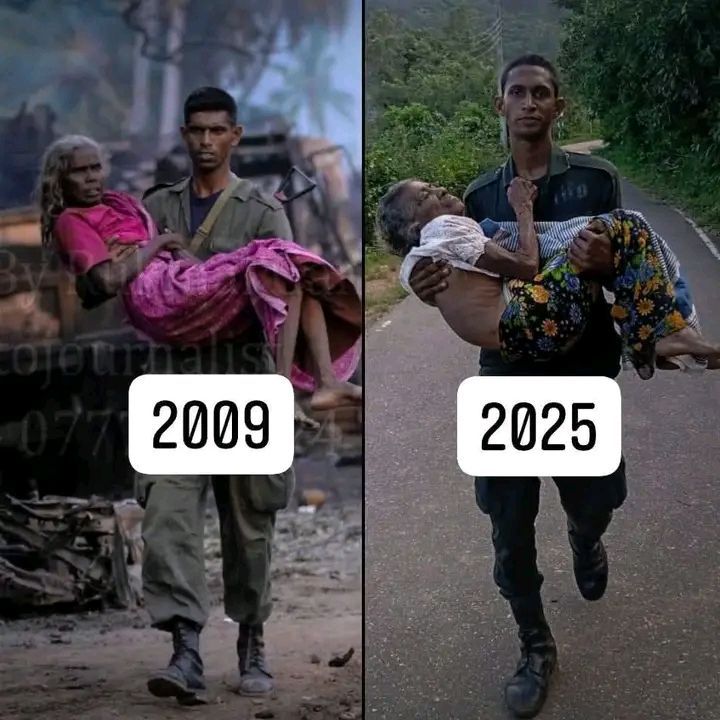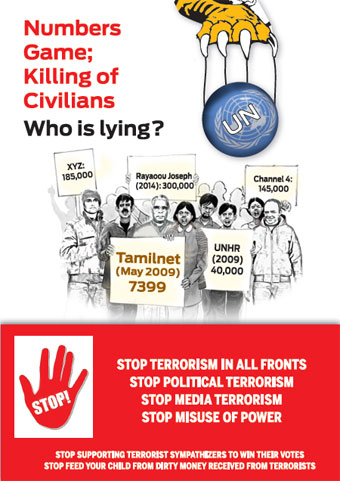The Thirteenth Amendment
Jana. M. Jananayakam
(Courtesy of The Sunday Island)
The Indo-Sri Lanka Peace Accord was signed in Colombo on July 29, 1987, between Indian Prime Minister Rajiv Gandhi and Sri Lankan President J. R. Jayewardene. The accord was expected to resolve the Sri Lankan Civil War by enabling the thirteenth Amendment to the Constitution of Sri Lanka. This amendment created Provincial Councils in Sri Lanka. This amendment also made Sinhala and Tamil as the official languages of the country and English as the “link language”. War continued for 22 years after the accord and 10 years have lapsed after the end of war. 13th amendment is yet to be implemented. The subject was taken up in the meeting the new President had with the Prime Minister of India.
Do the Government need this amendment implemented to address the immediate problems of war affected Tamils and Muslims in North and East? What are the urgent problems faced today?
In the order of priority they are
War affected families in thousands struggling to find livelihood. Proper residence, an income and peace of mind are what they look for.
All children in their school going age MUST be sent to school. The schools must teach Science, Maths and English. It is not happening now.
People in need of Medical attention must be given proper medical treatment if necessary by taking to Colombo or even India.
People detained under PTA for long time should be released.
All school leavers must get employment or a training leading to employment. All the graduates must be given a career path and guidance to make them employable in Industry.
To solve the above you do not require 13th amendment or a new constitution and you do not have to withdraw the PTA. President and the Government can find a solution within the existing constitutional framework. They will have to address the above to build the country. Building a robust economy is not possible unless basic differences among the communities are resolved and the communities are reconciled.
Everyone knows that devolution of power is not welcome by the majority of Sri Lankans. Can the devolved system work well with a hostile majority? In this situation the implementation of 13th amendment will hinder the reconciliation as well as the task of finding a solution for the immediate problems. The immediate problems and economic freedom are more important than power devolution. When economy strengthens reconciliation and even devolution will become easy.
The country can be built into a strong economy to achieve happiness, prosperity and progress for all. Singapore had done it, why not Sri Lanka? Lee Kuan Yew followed the concept of meritocracy in appointing high officials and had a pinch of dictatorship while dealing with individuals or press working against communal unity and development of the country. Singaporeans adapted a National Pledge which read as follows
“We, the citizens of Singapore,
pledge ourselves as one united people,
regardless of race, language or religion,
to build a democratic society
based on justice and equality
so as to achieve happiness, prosperity
and progress for our nation.”
The National Pledge is recited in schools on all school days, either in the morning or afternoon, during Singapore Armed Forces Day, during the National Day Parade, and at National Day Observance Ceremonies.
According to late S. Rajaratnam, then Minister of Foreign Affairs, the Pledge emerged against the backdrop of a vital struggle to forge a sense of nationhood and build “a Singapore we are proud of”. He believed that language, race and religion were potentially divisive factors and used the Pledge to emphasise that these differences could be overcome if Singaporeans were united in their commitment to the country.
President Rajapaksa has the courage, determination, commitment and the capacity to build a strong Nation.
Sri Lanka is basically an agricultural country but we are importing red chillies and small/red onion to the tune of over 5 billion. This money can go into the hands of farmers if Government adapts a policy to encourage farmers. During the early seventies Sri Lanka was growing the domestic requirement of chillies and onions. Right policy can bring back that situation. India is exporting chillies to USA, even we can do it when our cultivation exceeds domestic requirement. Other essential agricultural produce we are importing are maize, ground nut, soy beans and big onion. These too can be cultivated to meet the domestic requirement. These changes need strong policy decisions.
During seventies Northern Province had a Cement Factory in KKS, a Chemicals factory in Paranthan and a Saltern at Elephant Pass. They met the domestic requirement of cement, caustic soda and salt. Today we are importing cement, caustic soda and even salt. In Jaffna, Arasco Industries and Murugan Industries were exporting canned fruits to Middle East. North had few cupola foundries, a fish meal plant, glass blowing factories, soap factories, one bleaching powder factory and many other ancillary factories. All these will come back when an industry friendly environment with assurance for safety of the investment is created. Also several hundreds of billions will flow into the country the moment investment and industries are protected. Here again a strong policy decision is necessary.
Let this election be a turning point in the history of Sri Lanka as the people have elected a strong President with clear majority who can take a path of Development via reconciliation to achieve a prosperous country where Sri Lankans are united in their commitment to their country.
Regarding 13th Amendment the Government of Sri Lanka must talk to India about the ground reality, the immediate problems faced by the affected community and the possible negative outcome in implementing the amendment. There is a need to talk to India because the amendment came from Indo Sri Lankan Accord and cannot be repealed unilaterally.
Let us hope and pray that the third decade of 21st Century dawns on a Happy Prosperous and United Sri Lanka.
(The writer lives in Australia)
197 Viewers








